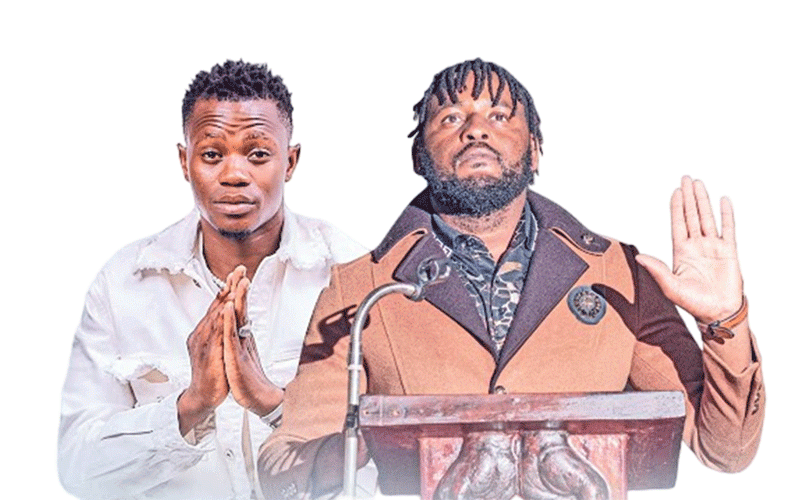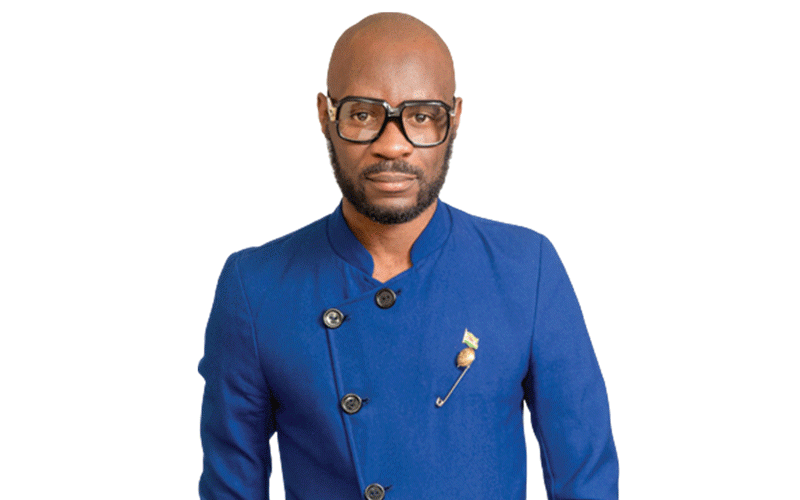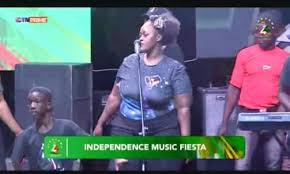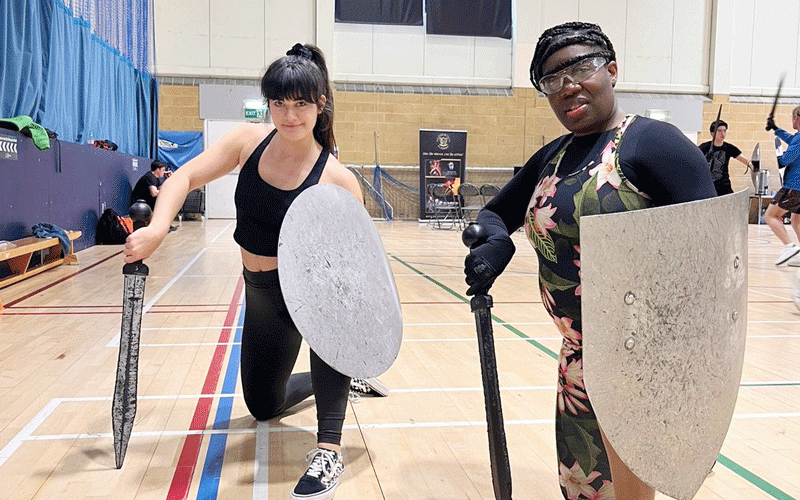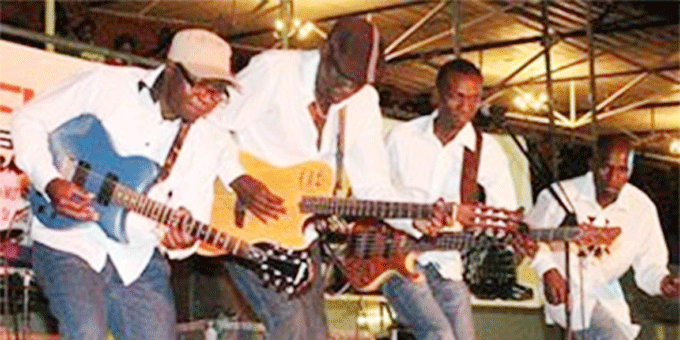
By Fred Zindi
Who is Philani Dube? Somebody might want to ask me. But you won’t ask me who Oliver Mtukudzi was.
Guitarists and other music instrumentalists are artistes whose sounds and the roles they play on stage and on the albums of superstars we know have largely unsung reputations.
Dube is one such instrumentalist who helped shape Oliver Mtukudzi’s music. Many of Tuku’s fans will remember the great guitar solos and riffs that came along with his music, but they never bothered to find out who was behind such beautiful guitar melodies.
This unfortunate situation applies not only to Dube, but to many great instrumentalists and great names in the history of Zimbabwean music.
However, because they are/were not the lead singers in their respective bands, very few people will have heard about them.
I’ve always had a soft spot for people like these. They make tremendous contributions to the history of Zimbabwean music and that of the world but have never received the appropriate credit that they deserve.
We, as journalists, tend to spend all our energies concentrating on more popular artistes. Many of us think that it is the most popular artistes who give us our identity but this fallacy is not always true. I regret and also apologise for not having written about great people such as Dube before their deaths. But it is through instrumentalists such as Dube, who make popular artistes tick.
- Chamisa under fire over US$120K donation
- Mavhunga puts DeMbare into Chibuku quarterfinals
- Pension funds bet on Cabora Bassa oilfields
- Councils defy govt fire tender directive
Keep Reading
Chances are that you have never heard the name Dube, but he could be the reason you enjoy all the music you hear from Mtukudzi as Dube was one of the musicians that helped to shape Tuku music, which you still enjoy today. Talk about an unsung hero, Dube is one such hero. He played the lead guitar with passion and gave us all the melodious sounds we heard when Tuku was at his peak.
It was Dube, who obviously cracked the code when it came to nailing amazing Tuku sounds. In fact, it was Dube, who was a big part of the reason the rest of us spent so much time pulling our hair out over the sounds coming from his guitar. His contribution was and remains the hallmark of Tuku Music.
Born on January 23, 1968, the late Mzala, as Dube was affectionately known, started his musical journey at a New Magwegwe bus terminus in Bulawayo where he would go and practise after school each day. When he completed his O’ Levels, he had mastered his guitar skills to the extent that he started looking for a band to join. After playing with one or two Bulawayo-based bands, Jabu Zondo of Andy Brown’s band, The Storm invited him to Harare. He moved to Mabvuku in Harare where he had a short stint with The Storm .
He later came across a stroke of good fortune and joined Mtukudzi’s Black Spirits in 1991.
Mtukudzi when making song compositions always insisted on laying out the basslines, drum patterns, keyboards and backing vocals. His musicians would just be given the lines to play or sing and were told how the song should sound, but when it came to the lead guitar, Tuku did not give instructions on the lead guitar sound. Dube was left to do his own thing. Fortunately his solos and guitar riffs resonated with what Tuku wanted in a song. So, Dube was the man behind the great guitar lines for Tuku music. He was a great guitar line melody composer. If you take away his guitar lines, most Tuku songs would lose meaning. For instance, in songs such as Dzoka Uyamwe, Raki, Tindike, Gondo, Bvongodza Muto, Murimi Munhu, Mhakure, Sandi Bonde, Chengetai, Ngoromera and a lot more, his guitar lines are quite conspicuous.
In 2003, Dube lost his wife, Esther Manayi with whom he had two children Pablo Nkosana Dube, (now aged 25) and Zanele Kim Dube (now 23 years old).
His wife was laid to rest at Unit L Cemetery in Chitungwiza, a burial that was also attended by his long-time friends Ashwin Thabeni and Collen (who used to play keyboards for Tanga Wekwa Sando) as well as Mtukudzi’s bandmates who included Picky Kasamba..
After the burial of his wife, Dube’s own health deteriorated and he took a break from music. Tuku was desperate for a guitarist who would replace and sound just like Dube as work kept coming in. This led to the coming in of Clive “Mono” Mukundu.
When Dube recovered, he made a surprise return at Andy Millar Hall during a live perfomance by Tuku and the Black Spirits.
They performed three songs, Cheka Hukama, Raki and Tindike, much to the delight of the revellers, only for the afflicted Dube to leave the stage before the end of the show due to his illness.
Fortunately, Mono was on standby and the show continued.
Enter Mono: “Tuesday February 4, 2003 was the day I did my first rehearsal with the band. Mtukudzi was more concerned about the forthcoming Tsivo album than the gigs since Dube was still fit to perform. So, the new album is all we rehearsed for two weeks.
But on Saturday February 15, around 7pm the camp was informed that Dube’s health had deteriorated to the extent that he couldn’t perform, and there was a gig at Andy Miller arena that night. Both Debbie Metcalfe and Tuku called me in a state of panic to come jam. The worst part is we had never rehearsed any of the gig repertoires, and that was a huge gamble. Although Tuku’s music was identified mainly by his acoustic guitar, it was basically lead guitar-driven, and his fans knew all of his guitar melodies note by note. I had never been so scared all my life.”
The Black Spirits continued using two lead guitars whenever Dube recovered as evidenced by the recording of Nhava, which features two lead guitar players, Mono and Dube.
In 2006, Umoja Outfit went to Maputo with Tuku as their Zimbabwe patron. Tuku, Steve Chifunyise and I sat in the audience watching those youngsters perform. When the Zimbabwean performers consisting of Vimbai Zimuto, Onai Mutizwa, Charles Chipanga and Namatai Mubariki were on stage, they did a rendition of Tuku’s Ndozeza Baba with such high impact to the extent that Oliver was moved by the song. He pulled himself from among us and jumped on stage to join them. When he came to join us again, Steve remarked jokingly, “Well done Oliver. You don’t need another band now. That one on stage is a wonderful band. You blend so well with them”.
Although uncle Steve’s statement sounded like the tail wagging the dog, Tuku did not see this as a joke. He took Steve’s remarks seriously.
Apparently, Tuku was having problems with his band back home. Some of the Black Spirits members had demanded shares in the Pakare Paye project and Tuku was fed up seeing that he had started working on this project long before they had even joined the band. The second thing was that he felt that with Dube in and out of hospital, his music was beginning to sound like that of Jimi Hendrix instead of his traditional roots music of Katekwe.
On his return to Zimbabwe he decided to change the sound of his music. He took some of the Umoja musicians he was on stage with in Maputo and asked them to join his band. The band now included marimba and percussion.
In 2007 Tuku relieved his band members of their duties. These included Dube, the late Kenny Neshamba, Jairos Hambahamba, Bobby Mutyasira, Mono Mukundu and Mary Bell. They were replaced by Zimuto, Chipanga and Sam Mataure. Kasamba, bassist Never Mpofu and Mubariki survived the chop.
On June 27, 2007, Dube complained of chest pains and fever that had affected him during a live show in Kwekwe.
He was taken to Chitungwiza hospital in the company of Ashwin Thabeni where he was admitted and succumbed to pneumonia on July 2, 2007. He was buried at Pelandaba Cemetery in Bulawayo.
I spoke to Mataure, who worked with Dube in the Black Spirits as drummer and later as Mtukudzi’s manager. This is what he told me: “Philani was a very creative and perceptive guitarist. He in many ways helped to shape Oliver’s sound. In many instances Oliver would tell us how he wanted the bassline or the drums to sound, but when it came to the lead guitar sound, Philani was left to do his thing and in most cases his sound would resonate with what Tuku wanted. At live concerts, Tuku’s fans were all geared up to the familiar sounds they heard on his recordings and when Philani became sick and started to miss some of the gigs, the fans knew straight away that something was missing. His death was a very sad situation.”
It was Lashwin Thabeni, Dube’s neighbour in Chitungwiza who took over the looking after of Dube’s two orphaned children and as he puts it in an e-mail sent to me by Gainmore Paka: “I, Lashwin Thabeni, I am a proud father seeing Philani’s kids now grown up,15 years since vakoma [brother] left us. May his dear soul continue to rest in peace.”
- Feedback: [email protected]

